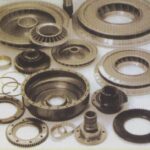Are Volkswagens Reliable? (and Models to Avoid)
Volkswagen is the largest car manufacturer in Europe. Not only that, but it is also the second-largest auto manufacturer in the world with revenue over $247 billion, only after Toyota, which sits at the top position by a narrow margin.
The question that arises is: are Volkswagens reliable? is this why they are so popular? Or is it just a monopoly of being the biggest player in the market? Let’s find out.
Are Volkswagens Reliable?
Volkswagens do not have impressive ratings when it comes to reliability. A recent survey ranked Volkswagen 22nd out of 29 brands for reliability. Though they were ahead of some other German brands like Audi and BMW. But they were no way near the Japanese and Korean brands.
The competition of Volkswagen is not BMW, it is with Ford and Toyota. As it attracts the masses. All the general public wants for their car is to be reliable. All in all, we can say that Volkswagen needs to kick its reliability if it wants to stay in the competition.
Do Volkswagens Last Long?
If properly maintained then your Volkswagen should last at least 100,000 miles before requiring a major engine overhaul.
It is lesser than Japanese, Korean, and even American brands. They have an average life span of over 200,000 miles. With some cars even reaching the 500,000 miles marker. But Volkswagen can outlive lesser reliable Italian or other European brands.
Do Volkswagens Tend to Rust?
You would usually see two extreme answers to this question. Some people say that Volkswagens are rust buckets and would corrode even if you take good care of them. On the other, you would also find people praising that Volkswagen cars have been fully galvanized since the mid-’90s.
Both opinions have some truth to them. Models like Polo would catch rust very often. However, most of the VW cars were well-protected against corrosion.
No extra protective layer is required on Volkswagen with the exception of a few models. As their body panels are fully galvanized.
Also read: VW Jetta Engine Replacement Cost. What to Expect?
Are Volkswagens Expensive to Fix?
Volkswagens are not expensive to fix in general because they are mass-used cars. You would easily find a VW mechanic at the corner of your street. But sometimes the problems are so complicated that it costs you a fortune to fix.
Volkswagen has less time spent in workshops on average, which means lower problems’ frequency. But the severity of these issues is the real question. Due to which, it might be costly to fix a Volkswagen.
You can read more about the costs associated with fixing your Volkswagen in this article.
Are Volkswagens Comfortable?
Most Volkswagen cars are very comfortable and easy to drive. The user interface of infotainment and other features is quite friendly. Which keeps you engaged while driving. The sofa seats and shockproof suspension in VW cars would amplify your riding experience.
Trending Video: How to Easily Bring Back to Life any Old Car Battery and Save Tons of Money (click to watch)
If one thing that all German brands are good at providing is riding comfort. They are little bundles of joy, jam-packed with features. You might question the practicality of these features, but they are there to help you.
What are the Most Common Problems with Volkswagens?
Following are the most common problems with Volkswagen:
- Engine Oil Leaks
- Electronics Failure
- Ignition Coil Failure
Let us take a closer look at each of these problems.
- Engine Oil Leaks
Due to compromised build quality, oil leaks have been pretty common with Volkswagens. This issue would usually arise after 100,000 miles. To repair the leakage, new valves and gaskets were installed. Which costs you between $310 and $450.
- Electronics Failure
Almost all German brands have an inherent defect of twisted electronics. A sensor malfunctioning and limiting the performance of your car is very common in Volkswagen. A failed horn has also been reported. Such issues would cost you between $200 to $500.
- Ignition Coil Failure
Due to the failure of the ignition coil, Volkswagen cars faced a delay while starting. The engine produced a clinking noise when the ignition coil was unable to provide current to spark plugs. Depending upon the make and model of your car this issue costs about $150 to $330 to repair.
Are Volkswagens Safe?
Volkswagen cars are very safe and that is not an overstatement. They are built to protect passengers during extreme accidents. Airbags, safety tech, and Isofix anchors are standard across all models of VW. Most of their cars have received a 5 out of 5 rating in crash testing.
Car brands all around the world prioritize safety, but regulations in Europe are stricter. Volkswagen is in full compliance with these safety guidelines. As it continues to work on making the cars more safe.
In case of a major crash, the airbags would come out in a split-second ensuring the safety of the driver and passengers.
Also read: VW Bluetooth Microphone not Working (Solved)
Is the Quality of Elements in Volkswagens Good?
Volkswagen might not make the most reliable cars around, but they are most certainly top-quality cars. The build quality and material selection for VW have been consistent. The quality of elements was an issue in the past, but it has been resolved in recent times.
You can buy a Volkswagen car with confidence.
Do Volkswagens Depreciate Fast?
Volkswagens do not depreciate fast, they hold on to their value very well. Over the period of 5 years, a Volkswagen would depreciate 46% only. It is comparable to the depreciation of highly reliable Japanese brands.
You can take a look at the depreciation of particular Volkswagen models in this article.
Especially during the initial years, the Volkswagens hold their value better than any other car brand in the world. It is only after 4-5 years when major problems start occurring and the car value drops. Otherwise, your investment in Volkswagen is quite safe.
The following illustration shows the average depreciation of Volkswagen cars over 15 years:

Does Volkswagen Offer Good Engines?
Like its other German counterparts, Volkswagen offers good engines. Engine-wise, Volkswagens are one of the most reliable cars in the world. Their engine provides optimum levels of power while maintaining their reliability.
Both diesel and petrol engines produced by VW match the levels of reliability and performance offered by any other car brand.
Following are the most powerful engines in VW cars:
- Volkswagen Touareg R had a front-mounted 3L V6 Turbo PHEV Petrol engine capable of producing 456 hp. Making it the most powerful engine in a VW car.
- 2.0-liter turbocharged engine in VW Golf can produce 315 hp
Are Volkswagens Expensive to Maintain?
Yes, Volkswagens have above average maintenance costs. Most of their cars cost over $600 in maintenance per annum. This makes them the most expensive cars to own in the economy sector.
The labor rates for fixing VW cars are not very high, neither are the parts prices. Even the problem frequency is on the lower side.
The real problem lies with the nature of defects that arise. A lesser number of problems occur, but those are not small problems. Mostly you would have to deal with clutch, alternator, fuel pump, water pump, or ignition coil replacements. Which are all very expensive.
Otherwise, the scheduled maintenance of a VW car would only cost you $300 for one year.
Are Volkswagens Expensive to Insure?
Volkswagen’s cars are not expensive to insure. They have average or below-average insurance costs in some cases. It would cost you $1,515 per year to insure your VW.
This cost is very competitive and better than some of the cheapest brands like Toyota and Honda. Mainly it is due to the low problems frequency and higher safety standards followed by Volkswagen.
Also read: Buying a German Car: 5 Pros and 2 Cons
Are Volkswagens too Expensive to Buy?
Volkswagen cars are very affordable. The target audience for the majority of models is the general public. This is why they keep the prices to the bare minimum.
The prices of some of the most popular cars in the Volkswagen lineup are:
- Volkswagen Jetta – $19,815
- Volkswagen Passat – $23,915
- Volkswagen Golf – $24,115
- Volkswagen Tiguan – $25,965
- Volkswagen Atlas – $32,565
- Volkswagen Arteon – $37,015
What are the Most and Least Reliable Volkswagens?
Some of the most reliable models produced by Volkswagen are:
- Volkswagen Golf
Golf has been the most reliable car in the Volkswagen lineup for generations. It scored 4 out of 5 for reliability. The average maintenance cost of this car is $630. Making it a suitable candidate for becoming the family car.
- Volkswagen Jetta
Jetta was a fine attempt by Volkswagen, and it was positively perceived by the consumer markets. The reliability rating of the Volkswagen Jetta was 4 out of 5. It spent less time in the workshop for unscheduled maintenance as opposed to some of its competitors.
Similarly, following are the least reliable Volkswagen that you must avoid at all costs:
- Volkswagen GTI
GTI was aimed at occupying the dying market of Volkswagen hatchbacks. It had one of the worst ratings for a Volkswagen car at 3 out of 5. The average ownership cost of this car was $797. This figure shows the compromised reliability of GTI. It also gives an idea about how much time it had to spend in the workshop.
- Volkswagen Passat
Passat might not be among the all-time worst cars of Volkswagen. But some of its models were a real source of pain for users. Especially the models of 2002, 2003, and 2006 were rated as the worst for reliability. Newer models of Passat are improving. Still, this car has a long way to go.
What are the Best Volkswagen Alternatives?
The best alternatives for Volkswagen cars are:
- Ford Focus
- Toyota Corolla
- Audi A4
- Ford Focus
The best option to substitute your hatchback Volkswagen is the Ford Focus. Ford Focus offers the best riding comfort in its category. It is laced with modern features, connectivity, and functions. It has ample cabin and trunk space to fulfill your needs.
- Toyota Corolla
Volkswagen’s sedans like Jetta can be easily replaced by the likes of Corolla and Civic. We would prefer Corolla over Civic as it has a broader market. It offers high levels of safety while delivering optimum power output.
- Audi A4
In case you are missing the premium feel of your German car, then you can consider moving on to Audi A4. It can be a perfect match for your Volkswagen Passat. With the same luxurious interior and fun-to-drive experience, Audi A4 is a perfect car.
References:
autocar.co.uk, desertoasisautorepair.com, motorbiscuit.com, vwproblems.com, hanceseuropean.com, cars.usnews.com, repairpal.com, echopark.com, themotordigest.com, echopark.com, caranddriver.com, osv.ltd.uk, motorandwheels.com, encycarpedia.com, media.vw.com, car-engineer.com, carwow.co.uk






